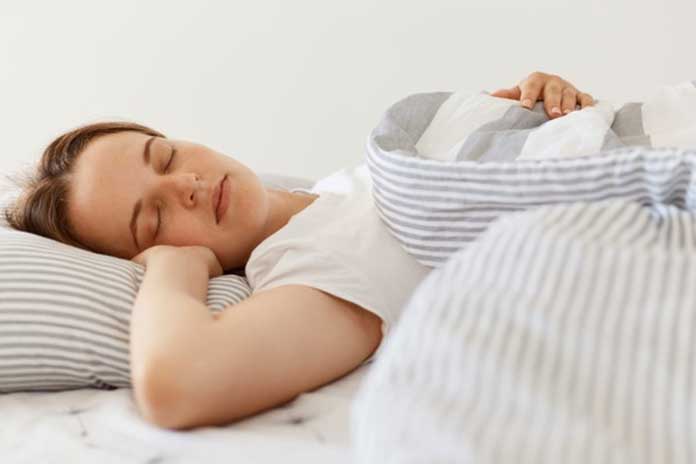Power napping, i.e., the short nap, not only compensates for a sleep deficit. According to new studies, it also strengthens the immune system and reduces stress.
The other day we had an intern, very athletic, fit, good-looking. Instead of visiting the surrounding bars with us during the lunch break, he drove home for a power nap every lunchtime and returned punctually after an hour, deeply relaxed. Alas, if the nap fell flat, then by three o’clock at the latest, he would growl. This proves how much you can learn from interns because power napping compensates for lack of sleep, strengthens the immune system, and reduces stress. This has now been proven by a French research team led by Brice Faraut at the University of Descartes-Sorbonne Paris Cité. A short snooze can compensate for the consequences of a lack of sleep because too little sleep throws our hormone system off track.
Table of Contents
Power Napping Brings Measurable Results
In a study with eleven men between the ages of 25 and 32, the researchers have now been able to prove that power napping brings measurable success. The researchers exposed the participants to two sleep situations. Both times they were only allowed to sleep for two hours a night. However, the young men were once allowed to do two 30-minute power naps the following day. The other time they had to get through the day like this. Each time, the researchers determined certain levels of biomarkers in the urine and saliva. These included messenger substances and stress hormones such as interleukin-6, catecholamines, norepinephrine, and dopamine. The result: After the short night, the concentration of the stress hormone norepinephrine had increased by a factor of 2.5 in each of the participants.
Power Napping Lowers Stress Hormone Levels
However, the values dropped again due to power napping. The substance is one stress hormone and plays a significant role in the stress response: it increases heart rate, blood pressure, and blood sugar. Second measurable result: the immune system also benefited from the nap. It normalized interleukin-6 levels. This messenger substance supports the immune system.
All About Power Napping
What Is Power Napping?
The English term “power nap” sums it up – a short nap that brings back the power, the energy. Only 10 to 15 minutes of sleep is enough; more than 30 minutes are counterproductive because the deep sleep phase begins, and it isn’t easy to get going again. Studies show that even this short rest phase at midday increases performance by up to 30 percent and reduces stress.
Where Does Power Napping Go?
Some companies, such as BASF or Lufthansa, provide their employees with unique relaxation rooms. But a lounger is not necessary; power napping can also be done in an office chair or on the floor; the main thing is that the posture is relaxed. Only silence is essential – without clear agreements with colleagues, nothing will come of the peaceful doze.
How Do I Wake Up Again?
Either with an alarm tone or a trick: Pick up an apple, key, or pen. When the deep sleep phase sets in, the muscles relax, the hand opens, and the object falls: you are awake again. Over time, you can also program yourself mentally for a wake-up time.
What Does Power Napping Do?
At noon between 12 and 2 p.m., we have our performance low for biological reasons. If we then digest our lunch, the energy goes completely flute. So power napping follows our natural need for a break. Positive effects of power napping are increased concentration, performance and responsiveness, and the ability to learn because the brain can process information known during sleep better. According to a Greek long-term study, a little nap also reduces the risk of heart attack by 37 percent. Researchers from the National Institute of Mental Health and colleagues from Harvard University found out in studies that power napping is even said to protect against burnout syndrome.
Other Countries, Other Manners
In other cultures, power napping is quite regular – in the Mediterranean and Latin America, employees disappear for siestas, in Japan napping in the park is called “Inemuri,” and in the USA “Metronap” rooms are becoming common, there you can even relax at some Airports or public buildings so-called pods – sleeper chairs with relaxing music – rent.
How Much Sleep Do You Need?
The need for sleep varies from person to person and depends on age. But if you sleep less than 7 hours in the long run, you risk health problems and obesity, by the way. The National Sleep Foundation has published the following guidelines:
- Newborns (0 – 3 months): 14 to 17 hours
- Infants (4 – 11 months): 12 to 15 hours
- Infants (1 – 2 years): 11 to 14 hours
- Preschool children (3 – 5 years): 10 to 13 hours
- School-age children (6 – 13 years): 9 to 11 hours
- Teenagers (14 – 17 years): 8 to 10 hours
- Young adults (18-25 years): 7 to 9 hours
- Adults (26 – 64 years): 7 to 9 hours
- Older adults (65+ years): 7 to 8 hours


